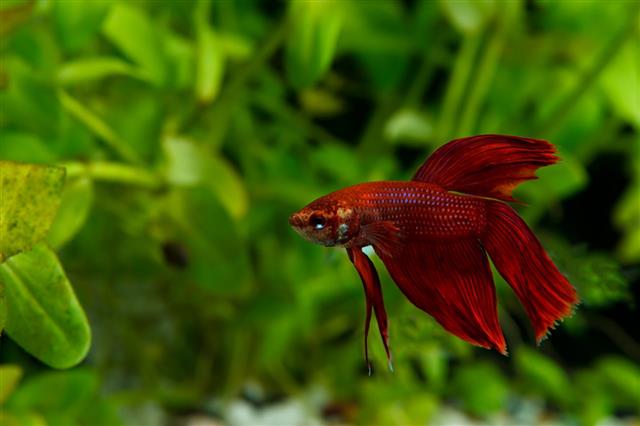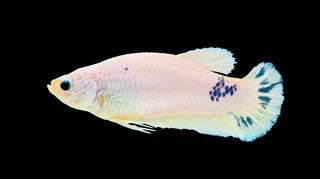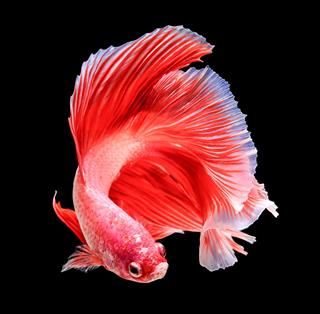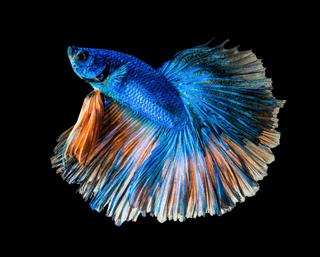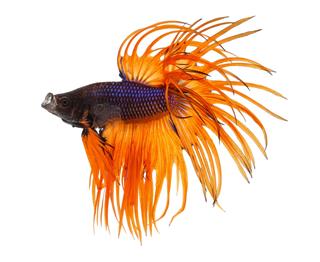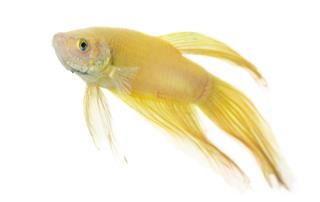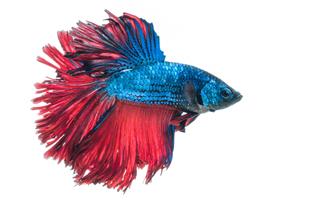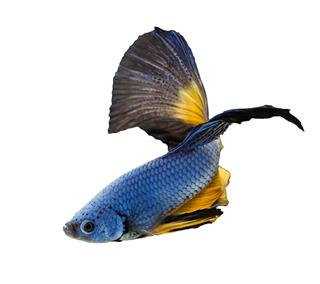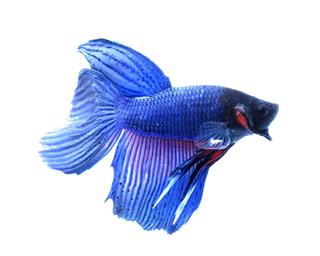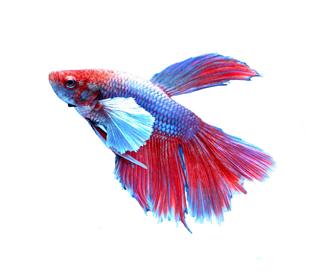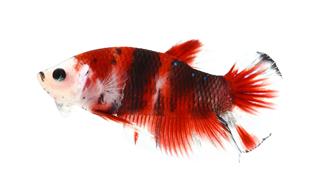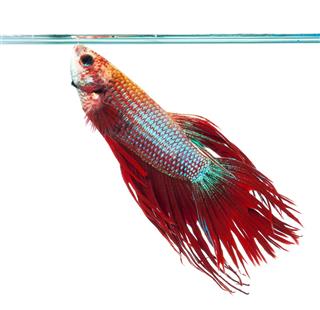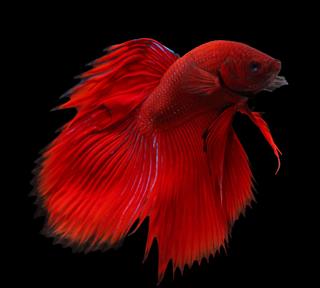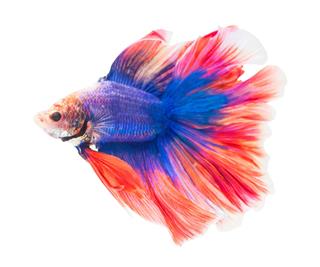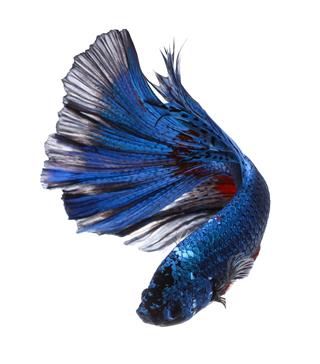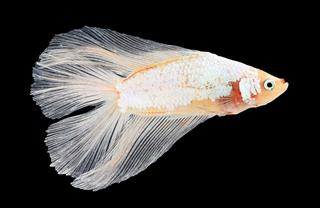
Betta fish are pretty active during the day. Do they sleep or not? When and how do they sleep? While providing answers to these questions, PetPonder also presents some interesting facts about these beautiful fish.
Did You Know?
Once the female betta releases all the eggs, she is driven away from the male’s territory, as she usually eats up the eggs. The male builds the bubble nest and carefully keeps the eggs in it. He repairs the nest as and when required, and sees to it that the eggs do not fall down.
Betta fish, often called ‘the jewel of the orient’, is native to Thailand, Laos, Cambodia, and Vietnam. It is also known as ‘Siamese fighting fish’. The scientific name of the species is Betta splendens. Bettas are known for their eye-catching, brilliantly colored, large flowing fins. As they feed on zooplankton, crustaceans, larvae of mosquitoes, and aquatic insects, they are often found in rice paddies, standing waters of canals, and floodplains (where mosquitoes breed).
If you have these beautiful fish in your aquarium, you must have noticed their daytime activities. They are fun to watch and interact with. They are excellent fighters. In fact, they are specially bred for fighting. They can continue fighting unless one fish retreats. So, you must have wondered whether these fish sleep or not. Here is the answer.
Do Bettas Sleep?
Yes, bettas do sleep. They also need rest. Like all other living creatures, sleep is an absolute must for them. They can’t survive without sleeping. But they don’t sleep exactly like human beings. They may become inactive. The frequency of mouth and gill movement is significantly reduced. They may float in place, or they may find a secured spot in mud or rock to rest. Such an energy-saving state can perform the same restorative functions as sleep does in human beings.
When Do Bettas Sleep?
Nocturnal fish sleep during the day and hunt at night. As bettas are active during the day, they sleep at night. Usually, they sleep when the lights are turned off. So, you may not be able to see them sleeping. Besides, they are very light sleepers (they have to constantly watch for the predators). They can sense movement around them even when they are asleep. So, if you want to watch them sleeping, turn off the lights, and watch them silently and carefully. It is necessary to switch off the lights in the tank on a regular schedule. They need darkness to sleep. If you wish, you may install a timer, so that the lights will be switched off at a certain set time every night. Besides, prolonged hours of lighting can increase the temperature of the water and the atmosphere significantly. The fish may not be able to rest due to high temperatures.
How Do Bettas Sleep?
➺ Bettas do not have eyelids, so they can’t close their eyes. They sleep with their eyes open. They find a comfortable spot at the bottom to rest. They become motionless for a while until something startles them. If you switch on the light, it may disrupt their sleep. They appear paler as they sleep.
➺ The fish may hide behind the filter or it may sleep on the top of a plant. Many times, a betta fish stays closer to the surface as it rests. Being a labyrinth fish, it can breathe oxygen directly from the air. It can take in oxygen from its gills. Because of the labyrinth organ, such fish can survive for short periods of time out of water. If they are sufficiently moist, they can inhale the air around them. This also explains how bettas can live in stagnant (low in oxygen) waters.
➺ People may think that the fish is dead, when it is actually lying on its side at the bottom of the tank and resting. It would make minimum motions with its fins. The fish can sleep in plants for a very long time without any movement. It may sleep over or under the leaves. It can even sleep inside the tube-like decorations. If you want, you can buy a ‘betta hammock’, you will get it in a pet store.
➺ These fish can sleep in very funny positions. For example, it may wedge itself under a rock and turn itself upside down.
➺ It may lounge and tuck itself into an L-shaped position for a short afternoon nap!
➺ Experts say that bettas suffering from an illness like constipation, or even the aged bettas may lie on their sides.
➺ Bettas are tropical fish. So, the temperature of the tank water should be between 75 and 82 degrees Fahrenheit. In the cold water, a betta can become lethargic and lie on his side. Apart from the temperature, you are supposed to maintain the quality of the water and food too. Sickness could make your betta lie on his side.
Bettas have the same sleeping cycle like humans. Regular sleep keeps them healthy and active. Healthy bettas are always active and moving. If your betta is resting frequently, it probably means it is sick.



